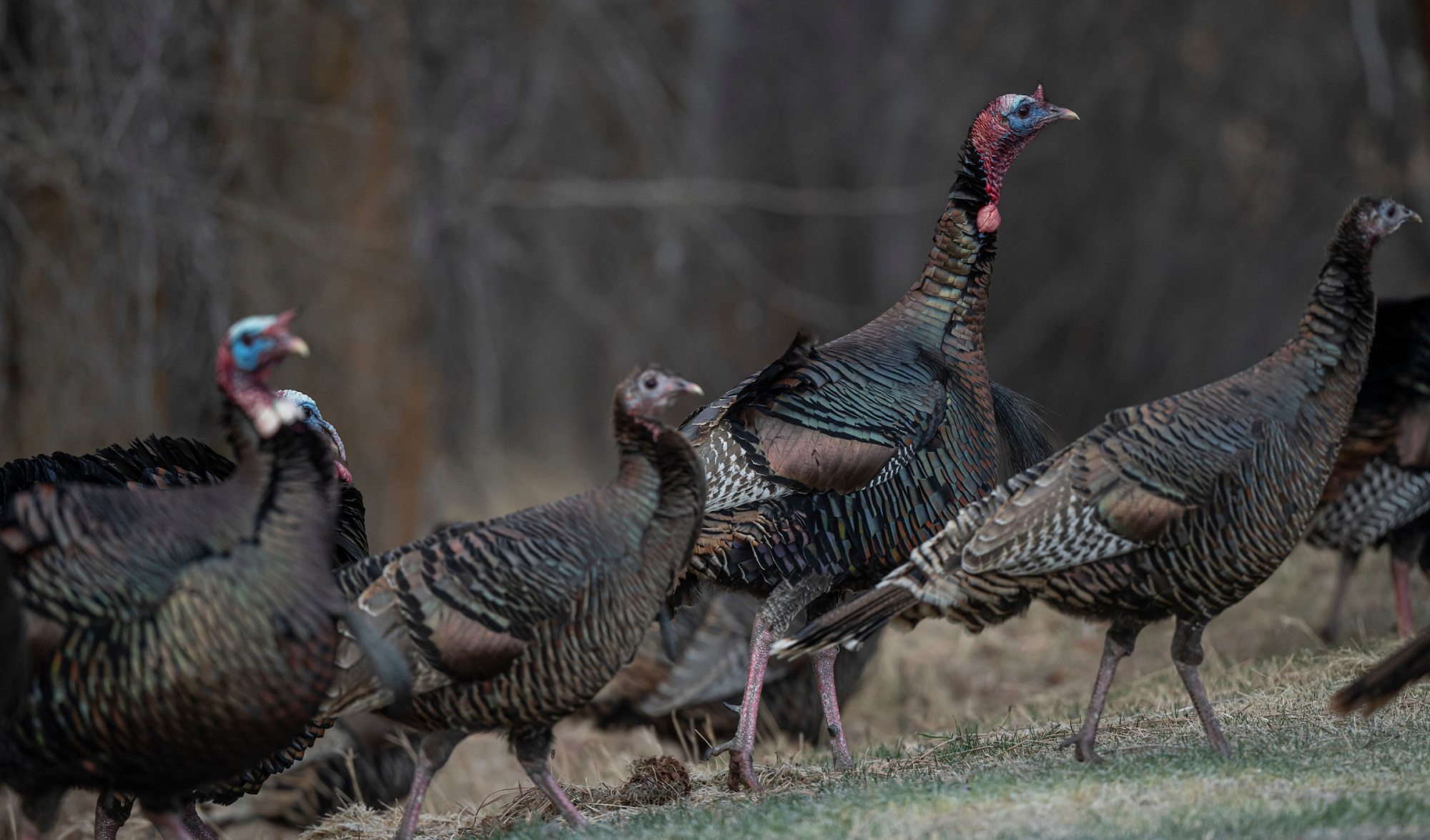On Friday, the Missouri Department of Conservation finalized plans to cut bag limits for their fall turkey season in half, limiting hunters from four either-sex turkeys down to two. They did this by consolidating what used to be two separate fall turkey opportunities — two either-sex birds on the fall archer’s permit (which also covers two either-sex deer) and two either-sex birds on a fall gun turkey permit — down to a single fall turkey permit with a two-bird bag limit that hunters can use either during archery or firearms seasons.
The reduction in fall tags mirrors other regulatory changes that have occurred in neighboring states, some of which slashed harvest quotas in previous seasons like Nebraska and Oklahoma while others are implementing changes for this year. Here’s a look at some of the major regulation changes to hit turkey country in the last year:
- Tennessee: two-week delay to spring opener, from three-bird bag limit down to two, only one jake
- Nebraska: unlimited nonresident permits down to 10,000, three spring permits per hunter down to two, one fall permit per hunter, one bird daily bag limit
- Kansas: cancelled fall hunt, two-bird bag limit down to one in some regions to match one-bird bag limit everywhere else, 9,700-permit cap for nonresidents
- Oklahoma: 10-day delay to spring opener, three-bird bag limit down to one
- Missouri: four-bird fall bag limit down to two
For example, nonresident turkey hunters in Kansas had to enter a draw for the first time if they had any hope of joining in on this year’s spring hunt. A nonresident draw was already on the table when Kansas wildlife commissioners voted to cancel the fall turkey season in September 2023. They also adopted a one-bird bag limit for the entire state and capped nonresident tags to 9,700 for the whole state at the time.
Meanwhile, in Texas, turkey hunters won’t have a spring 2025 season in either all or part of seven counties, although those changes are intended to close areas that have never supported robust turkey populations, Texas Parks and Wildlife Department wild turkey program leader Jason Hardin tells Outdoor Life. The Lone Star State and its roughly 500,000 wild birds is seeing a good year for production after struggles with drought from 2017 through 2022.
“The Southeastern turkey decline is something we’ve been looking at for quite a while now,” he says. “Texas is not immune to that. Kansas has changed regulations. Oklahoma went to a one-bird statewide bag limit. But right across the Red River, we’re still providing a four-bird bag limit, a spring and fall season, either-sex, so we’re a lot more liberal with harvest. But we think our population can support that. But that doesn’t mean we don’t recognize that there are some declines occurring across the state.”
Another rule change in Texas now makes wild turkey harvest reporting mandatory, which Hardin hopes will increase the data he and his colleagues have to work with in the future — data that, hopefully, will lead to increased hunter opportunity at some point.
“At a statewide level, our turkey populations are solid. Our half-million birds would probably stand up to any other state in the country,” Hardin says. “It’s been better, but I also think it can get better. We have an opportunity to grow this population.”
Changes in Turkey Management
The question of what is impacting Middle America’s turkey populations is cause for continued research and lots of speculation. Kansas Department of Wildlife and Parks small game coordinator Kent Fricke rattled off a variety of potential factors when discussing the fall 2023 season closure with Outdoor Life last May.
“In short, we’re not totally sure. Because the turkey is a ground-nesting bird, there are a lot of things that impact production, and they likely interact over space and time,” Fricke says, estimating that Kansas’ turkey population has declined by up to 60 percent in the last 15 years. “Certainly predators have always been a source of nest or poult loss, and that’s true for every upland nesting or ground bird out there. But more importantly, weather and environmental conditions [are changing]. We have also seen losses in habitat quantity and habitat quality.”
Now, Missouri is following in their neighbor’s footsteps by lowering their bag limits, as well.
“We were hearing a fair bit of concern from our turkey hunters in terms of having less birds on the landscape than we did when the population was at its peak, and we tend to hear more concern about fall season than the spring because it’s an either-sex season,” MDC’s former turkey biologist (and current elk and deer biologist) Jason Isabelle tells Outdoor Life. “So with lower turkey numbers and that hunter concern, we decided to become more conservative with our fall regulations.”
On the bright side, the new regulations also gave spring turkey hunters the freedom to hunt until sunset on private land, a departure from past years when all spring turkey hunting has ended at 1 p.m., Isabelle says. This allows more flexibility for hunters trying to squeeze a few hours in around their work days. (The spring season has always had a two-bird bag limit, and that will remain in place, Isabelle says.)
Read Next: Why Are Wild Turkey Populations Declining?
“Staff will continue to monitor success rates and post-season spring and fall surveys, in which they track hunter satisfaction [and] quality of hunt,” MDC deputy director Jason Sumners said in the April 5 commission meeting. “We’ll continue to analyze recruitment, especially as we look at changes to the spring season. We typically give most significant regulation changes [two] to three years to see what the true impact is, because we’ll see various uncontrollable fluctuations.”
Read the full article here




